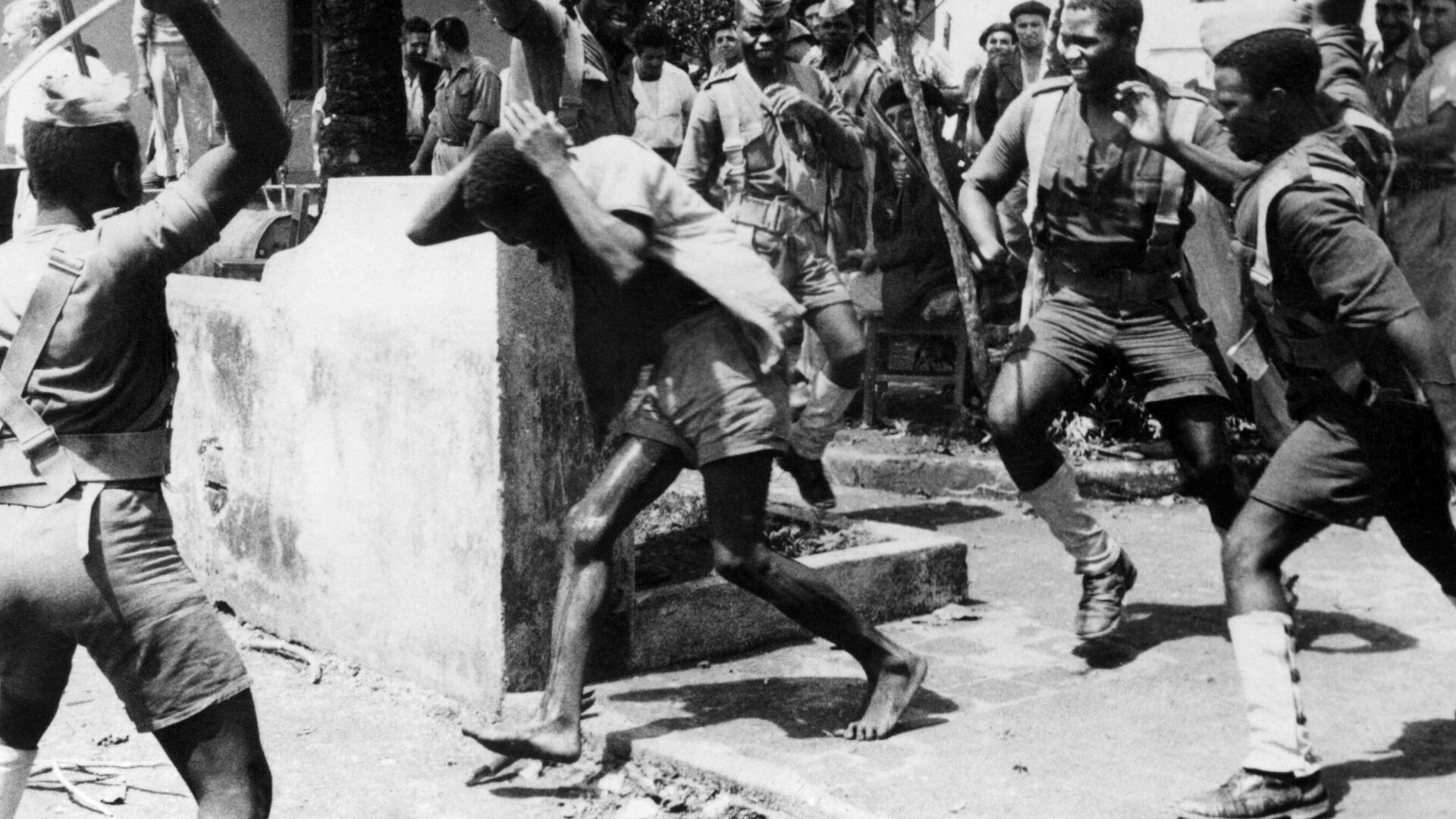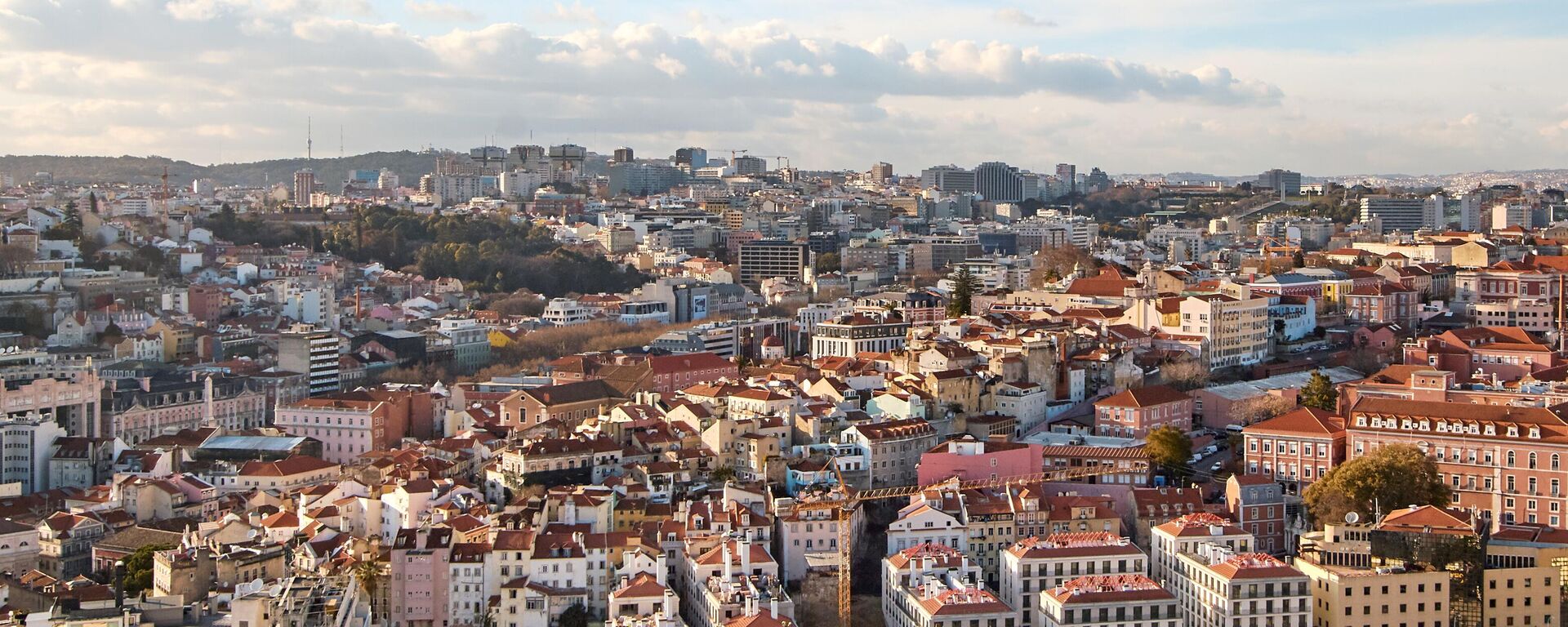https://en.sputniknews.africa/20240527/portugals-reparations-to-former-colonies-will-be-in-symbolic-area-professor-says-1066761347.html
Portugal's Reparations to Former Colonies Will Be 'in Symbolic Area', Professor Says
Portugal's Reparations to Former Colonies Will Be 'in Symbolic Area', Professor Says
Sputnik Africa
In late April, Portugal's President Marcelo Rebelo de Sousa declared that Lisbon was responsible for past mistakes and should pay for crimes committed during... 27.05.2024, Sputnik Africa
2024-05-27T19:01+0200
2024-05-27T19:01+0200
2024-05-28T10:45+0200
opinion
africa insight
portugal
angola
mozambique
sputnik africa
colonialism
reparations
southern africa
europe
https://cdn1.img.sputniknews.africa/img/07e8/05/1b/1066761859_0:264:2704:1785_1920x0_80_0_0_fd9e3a896a3a4fdb78b30510bb362f2d.jpg
Reparations for Portugal for its crimes during colonial times will likely consist of recognition of these atrocities but are unlikely to involve monetary compensation, António Costa Pinto, a research professor at the Institute of Social Sciences, University of Lisbon, and a Professor of Politics and Contemporary European History at Lisbon University Institute, told Sputnik Africa.A symbolic reparation may also include the return of artifacts stolen from there to the former colonies. However, the entire reparations process may be complicated by the current political situation in Portugal.Moreover, the whole situation with reparations is seen more as a political game, where a centrist right-wing president is opposed to the growing radical right-wing party, the professor said.Aside from that, it's interesting to note that since the end of Portuguese colonization in Africa in 1974, there have been few requests for reparations from the former colonies. When asked about the reasons behind it, the professor reckoned that this may be due to local political parties that came to power as independence movements and still dominate the countries.In early May, the education and cultural minister of Sao Tome and Principe, Isabel Abreu, said that the country intends to seek reparations from Portugal for the detrimental effects created by colonialism.
https://en.sputniknews.africa/20240428/portugal-has-no-intention-of-paying-reparations-for-slavery-government-says-1066272793.html
portugal
angola
mozambique
southern africa
europe
Sputnik Africa
feedback@sputniknews.com
+74956456601
MIA „Rossiya Segodnya“
2024
Christina Glazkova
https://cdn1.img.sputniknews.africa/img/07e7/0b/07/1063380906_0:0:673:674_100x100_80_0_0_79628b4d0cd9f29291a57aa13bbf9e7a.jpg
Christina Glazkova
https://cdn1.img.sputniknews.africa/img/07e7/0b/07/1063380906_0:0:673:674_100x100_80_0_0_79628b4d0cd9f29291a57aa13bbf9e7a.jpg
News
en_EN
Sputnik Africa
feedback@sputniknews.com
+74956456601
MIA „Rossiya Segodnya“
Sputnik Africa
feedback@sputniknews.com
+74956456601
MIA „Rossiya Segodnya“
Christina Glazkova
https://cdn1.img.sputniknews.africa/img/07e7/0b/07/1063380906_0:0:673:674_100x100_80_0_0_79628b4d0cd9f29291a57aa13bbf9e7a.jpg
africa insight, portugal, angola, mozambique, sputnik africa, colonialism, reparations , southern africa, europe, history
africa insight, portugal, angola, mozambique, sputnik africa, colonialism, reparations , southern africa, europe, history
Portugal's Reparations to Former Colonies Will Be 'in Symbolic Area', Professor Says
19:01 27.05.2024 (Updated: 10:45 28.05.2024) Christina Glazkova
Writer / Editor
In late April, Portugal's President Marcelo Rebelo de Sousa declared that Lisbon was responsible for past mistakes and should pay for crimes committed during colonial rule. However, a few days after this statement, the country's government said it had no intention of doing so.
Reparations for Portugal for its crimes during
colonial times will likely consist of recognition of these atrocities but are unlikely to involve monetary compensation,
António Costa Pinto,
a research professor at the Institute of Social Sciences, University of Lisbon, and a Professor of Politics and Contemporary European History at Lisbon University Institute, told
Sputnik Africa."In terms of economic reparations, it's very doubtful. I think the major consequences of this kind of policies [are] going to be in the symbolic area, is going to be in the recognition, finally, of Portugal that, regardless to the old ideology of Lusotropicalism, Portugal was another colonialism with all, of course, the major problems and impacts on African societies," he said.
A symbolic reparation may also include the return of
artifacts stolen from there to the former colonies. However, the entire reparations process may be complicated by the current political situation in Portugal.
"As far as I can see, the resistance of the Portuguese political elite is going to be very strong. And the fact that Portugal now has a radical right party with 20% of the votes, that is even trying to criminalize the president just because he mentions the problem [of reparations], it's going to be a huge problem," Pinto said.
Moreover, the whole situation with
reparations is seen more as a political game, where a centrist right-wing president is opposed to the growing radical right-wing party, the professor said.
"The reason why the president decided to do it is also a big question mark. I think it is related to preoccupying the space [in light] of the growth of this radical right-wing party that supports a very nationalistic vision of the past, that is always stressing the point of the old veterans of the colonial war. It's always stressing the point of the symbols of Portuguese national identity of the past, connected with the so-called "discoveries" and with the good things about Portuguese colonialism," he argued.
Aside from that, it's interesting to note that since the end of Portuguese colonization in Africa in 1974, there have been few requests for reparations from the former colonies. When asked about the reasons behind it, the professor reckoned that this may be due to local
political parties that came to power as independence movements and still dominate the countries.
"In 1974, the process of independence was very favorable to the independentist elite associated with the liberation movements. And in the majority of cases, especially in Angola and Mozambique, those are still the main elements of political power 50 years later. [...] They were, in a way, those who got the transfer of power from the very end of the process of decolonization. And that's probably the reason why demands for reparation were very, very few," Pinto concluded.
In early May, the education and cultural minister of Sao Tome and Principe, Isabel Abreu, said that the country intends to seek reparations from Portugal for the detrimental effects created by colonialism.



